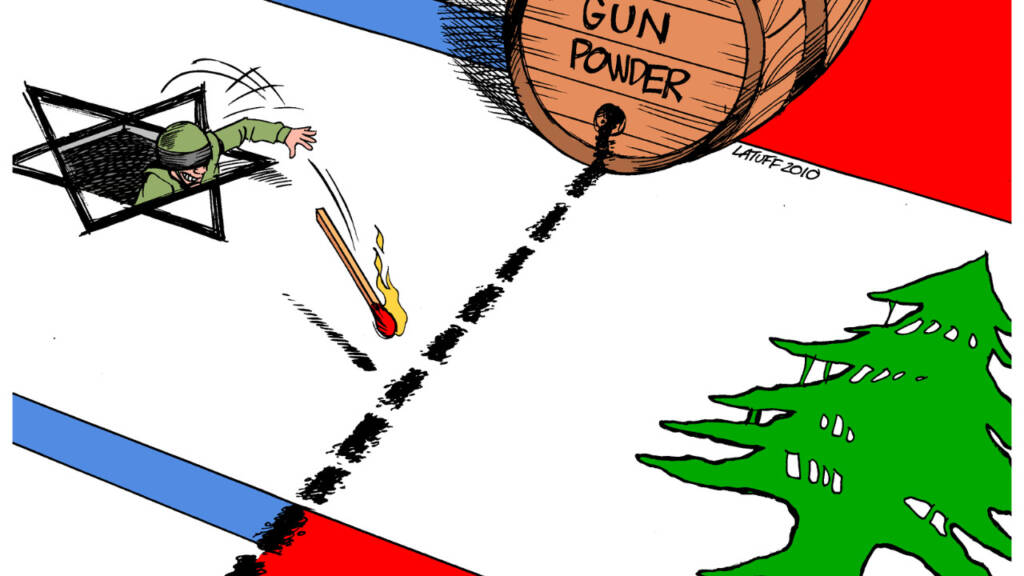Amid the Ukraine-Russia conflict hogging the spotlight, a ticking time bomb brews in the Middle East. Tensions flare along the Lebanon-Israel Blue Line, as a border wall dispute threatens the region’s fragile peace.
Lebanon and Israel have been technically in a constant state of war since August 2006, following a 34-day war that claimed many lives. While both sides have generally maintained restraint since then, recent provocations threaten to change the status quo dramatically.
The Border Wall Dispute
In 2018, tensions flared when Israel announced plans to construct a border wall on what Lebanon claimed as its territory. Subsequent disputes over the border and alleged violations of UN resolution 1701 heightened tensions further.
To demarcate the border, the United Nations established the Blue Line after Israel’s withdrawal from Southern Lebanon in 2000. However, its lack of clarity and UNIFIL’s perceived inaction have contributed to the escalating situation.
The Ghajar Village Dilemma
Ghajar village, a disputed area, has been a focal point of contention. Israel considers it part of the Golan Heights, which it occupied from Syria in 1967, whereas the international community disputes the annexation. The village’s northern segment is recognized as Lebanese territory, creating a dangerous standoff.
In response, Hezbollah, Lebanon’s political and military organization, placed tents on the opposite side of the Blue Line in Shebaa Farms, a disputed area between Syria and Lebanon. This move drew threats of violent retaliation from Israel and brought international attention to the crisis.
Washington’s Intervention
Amid mounting tensions, Washington reportedly pressured Lebanon to remove the tents. However, Hezbollah stood firm, underlining Lebanon’s sovereignty concerns over the occupied territory.
Read More: Syria Iran military partnership is ultimately going to make Syria a target for Israel
Last week, Hezbollah Secretary-General Seyyed Hassan Nasrallah delivered a televised speech in which he said that “liberating Ghajar is the responsibility of the Lebanese people, state and resistance.”
The issue there has been the completion of an Israeli security fence earlier this month that has in effect occupied a portion of Lebanese land. The US government is currently stepping in to assume the position of mediator.
A Looming Catastrophe
With a history of conflict and escalating tensions, any full-scale war between Lebanon and Israel could have devastating consequences. Civilians’ lives and critical infrastructure hang in the balance.
The 2006 Lebanon-Israel war resulted in around 1,200 dead Lebanese and hundreds of Israelis, at a time when Hezbollah – which was the main Lebanese force combating Israel – was relatively primitive compared to what it is today. Hezbollah’s rocket arsenal, relatively basic back in 2006, today has been updated to include precision missiles that can bring down high-rise buildings in Tel Aviv, just as Israeli missiles bring down high-rise buildings in Beirut. The Lebanese armed group boasts a standing army of 100,000 men, not including special forces and allied militias. This is relevant because in 2006, the Israeli military was forced to retreat from southern Lebanon and only encountered a force roughly estimated to have been around 14,000 men strong.
Read More: Iran’s “Lebanon Vs Israel” strategy is neither about Lebanon, nor about Israel. It’s Nuclear!
The likelihood of a conflict between the two Middle Eastern nations is currently high. Any full-scale war between Lebanon and Israel has the potential to displace millions, cause tens of billions in damage to infrastructure and even worse – the deaths of thousands of civilians.
Lebanon’s simmering crisis demands immediate global attention and diplomatic intervention. The potential for a catastrophic conflict in the Middle East underscores the urgency of resolving the border disputes and addressing the underlying issues. Inaction and ignorance will only worsen the situation, making timely diplomacy imperative to prevent disaster.
Watch More:
